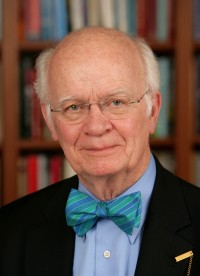Remembering Robert Bellah
Sociologists are reputed to be masters of suspicion, and many keep their distance from religious belief and practice. Robert Bellah’s field was the sociology of religion, and the longtime University of California, Berkeley professor—who died last week—certainly knew the value of “distance” in this and all human sciences. But as he studied people of faith and their practice—whether in “Tokugawa Religion” in Japan (his doctoral dissertation subject) or in America—he discerned integrity and value in the faith(s) of many. He pointed to positive value in what many in the higher academy often disdained.
Never one to wear his own Episcopal-style Christian faith on his sleeve or to carry banners advertising it, Bellah also did not hide it. His stance gave him special angles of vision that enabled him to understand the faith and un-faith of others. Forty years ago, secularists at Princeton’s Institute for Advanced Study turned their mastery of suspicion against him, challenging the institute’s plans to appoint Bellah to its faculty. In the process they revealed mainly the limits of their own empathy, interdisciplinary alertness and understanding.
Bellah turned back the institute’s invitation. With Berkeley continuing as his base, he spent the decades demonstrating his at-homeness and exploratory abilities in universities, conferences, public settings and the world of publishing.
Nothing Bellah wrote later scored as much as did his classic 1967 essay on “civil religion,” which noticed the religious ethos and practice that developed in the civil order alongside “institutional” religion. In Habits of the Heart, he and some teammates took a phrase from Tocqueville and used it to observe profound and consistent cultural traits and expressions. While keeping an eye on Japan and the United States, Bellah also looked far beyond them in Beyond Belief and farther still in Religion in Human Evolution, a daring venture with which the tireless octogenarian stirred new controversy and inspired fresh scholarship.
He is remembered as a soulful scholar, an exemplary teacher and a responsive friend.





